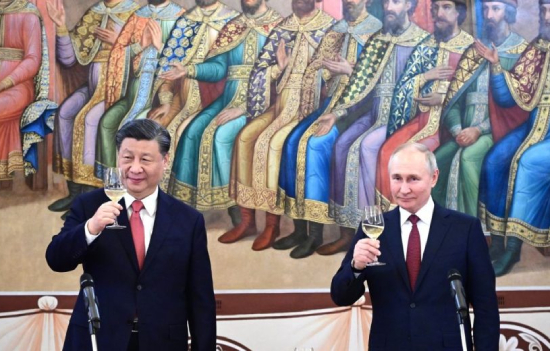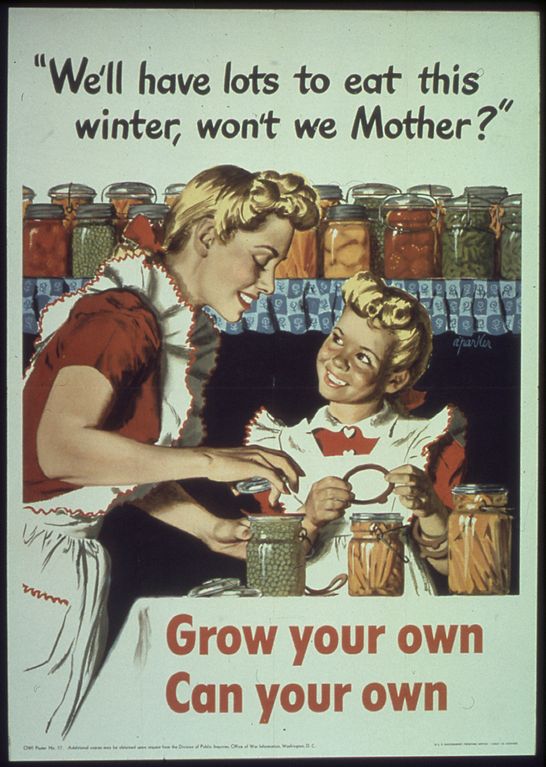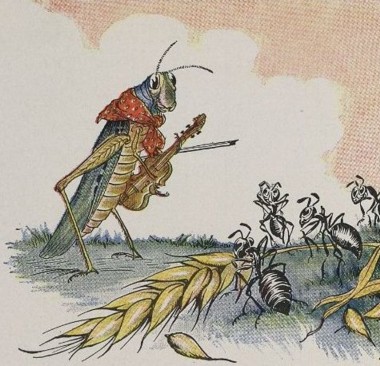(Sun Tzu, d. 496 BCE)
Whilst the structural shift to a multipolar world is now well understood in geo-political terms, its other dimensions are little noticed.
The media focus is so much centred on the military situation in Ukraine that it is easily overlooked that President Putin has also been fighting a financial war – a war on liberal economic theory; and a diplomatic war for the support of the non-West and from key strategic allies, China and India.
On top of that, Putin has to manage the psyche inside Russia. His objective is to restore patriotism and a Russian national culture reconnected to its roots in Orthodox Christianity. To achieve this, he needs to let it evolve in a civil context – To allow the military aspect to become all-encompassing would be to skew the Russian consciousness in a very particular way.
President Putin has spoken on several occasions of the need for ‘civil Russia’ to have the oxygen to evolve in its own way – by re-appropriating its past cultural legacy in new form – and for that process not to be wholly subsumed into military needs and ethos.
So, the project is, in fact, wholly multi-faceted – although undoubtedly, the struggle to restore respect for sovereignty and for autonomy in internal affairs represents the project ‘key stone’.
Yet, a significant part to re-appropriating sovereignty requires the shift of Russia’s economic structure out from the grip of the ‘Anglo’ neo-liberal model, to one that provides for greater national self-sufficiency. Hence, the simple questioning of the philosophical underpinnings to the ‘Anglo’ system of politics and economics – which underlie the Rules Order – is as important, in its own way, as the Ukrainian battlefield.
Like any system, the World Order rests on philosophical principles believed to be universal, but which, in truth, are specific to a particular moment in European history.
Today, the West is not ‘what it was’. It is a fractured ideological battlespace. The Rest of World is not ‘what it was’. And today’s ideological western writhings are no longer viewed as being of primary concern to the World.
The point here, however, is about a project designed to bring change to that which has not changed. It is as much a war for global psyche as of attrition on the battlefront (though that, too, is a vital component in shifting the global zeitgeist). If a multi-polar order is to be built based on self-sufficient sovereignty, others should exit the neo-liberal economic system too (if they can). Hence the need for a major diplomatic initiative by Russia and China to build a strategic depth for a new economics.
Then, there are the tactics behind the strategy: How, apart from ‘pathfinding’ a new economics, to help states recover their sovereignty? How to break the ‘with us, or against us’ hegemonic grip? How to facilitate the mutual complementarities that can move a group of states towards a virtuous cycle of self-generating sovereignty – albeit one that is reinforced by transport corridors, and assisted through building autonomous ‘self-security’. China, for example, is building an extensive African network of high-speed trains for inter-African trade.
The Sino-Russian project therefore cannot but challenge the financial and economic premises on which the Rules Order rests –and help evolve an alternative.
The Anglo-American system of economics, James Fallows, a former White House speechwriter has noted, like any system, rests on certain principles and beliefs:
“But rather than acting as if these are the best principles, or the ones their societies prefer, Britons and Americans often act as if these were the only possible principles: And that no one, except in error, could choose any others. Political economics becomes an essentially religious question, subject to the standard drawback of any religion – the failure to understand why people outside the faith might act as they do” [emphasis added].
“To make this more specific: Today’s Anglo-American world view rests on the shoulders of three men. One is Isaac Newton, the father of modern science. One is Jean-Jacques Rousseau, the father of liberal political theory. (If we want to keep this purely Anglo-American, John Locke can serve in his place.) And one is Adam Smith, the father of laissez-faire economics. From these founding titans come the principles by which advanced society, in the Anglo-American view, is supposed to work … And it is supposed to recognize that the most prosperous future for the greatest number of people comes from the free workings of the market”.
So, back to that ‘which has not changed’, Secretary Yellen recently delivered a speech on the U.S.-China relationship, implying that China largely had prospered on the back of this Anglo, ‘free workings’ market order; yet now was pivoting toward a state-driven posture: one that “is confrontational towards the U.S. and its allies”. The U.S. wants to co-operate with China, but wholly and exclusively on its own terms, she said.
The U.S. seeks “constructive engagement”, but one that must be subject to the U.S. securing its own security interests and values. “We will clearly communicate to the PRC our concerns about its behaviour … And we will protect human rights”. Secondly, “we will continue to respond to China’s unfair economic practices. And we will continue to make critical investments at home – while engaging with the world to advance our vision for an open, fair, and rules-based global economic order”. She finishes by saying China must ‘play by today’s international rules’.
Unsurprisingly, China will have none of it, noting that the U.S. seeks to gain economically from China – whilst demanding a free hand to pursue exclusively U.S. interests.
Put simply, Yellen’s speech displays a complete failure to acknowledge that the Sino-Russian ‘revolution’ is not confined to the political, but extends to the economic sphere, too. It shows just how important the ‘other war’ is for Putin and XI – the war to shape an exit from the grip of the financialised, neo-liberal paradigm.
Xi had made this clear in 2013, when he asked:
“Why did the Soviet Union disintegrate? Why did the Communist Party of the Soviet Union fall to pieces?…To completely repudiate the historical experience of the Soviet Union, to repudiate the history of the CPSU, to repudiate Lenin, to repudiate Stalin – was to wreck chaos on Soviet ideology and engage in historical nihilism”.
Put plainly, Xi was implying that, given the two poles of ideological antinomy: That of the Anglo-American construct, on the one hand; and the Leninist eschatological critique of the western economic system, on the other, the Soviet “ruling strata had ceased to believe” in the latter, and consequently had slid into a state of nihilism – (with the pivot to the western liberal-market ideology of the Gorbachev-Yeltsin era).
Xi’s point: China had never made this disastrous detour.
And what Yellen’s speech wholly misses is this geo-strategic paradigm change: Putin has brought Russia back, and into broad alignment with China and other Asian states on economic thinking.
The latter have, in effect, been saying for some time that ‘Anglo’ political philosophy is not necessarily the world’s philosophy. Societies may work best, Lee Kuan Yew of Singapore and others have said, were they to pay less attention to the individual, and more to the welfare of the group.
President Xi says it straight: “The right of the people to independently choose their development paths should be respected … Only the wearer of the shoes knows if they fit or not”.
Marx and Lenin were not the only ones to challenge the Anglo, liberal version. In 1800, Johann Fichte published The Closed Commercial State. In 1827, Friedrich List published his theories which took issue with the ‘cosmopolitan economics’ of Adam Smith and JB Say. In 1889, Count Sergius Witte, a Prime Minister in Imperial Russia, published a paper, which cited Friedrich List and which justified the need for a strong domestic industry, protected from foreign competition by customs barriers.
Thus, in place of Rousseau and Locke, the German theoreticians had offered Hegel. In place of Adam Smith, they had proposed Friedrich List.
The Anglo-American approach is premised on the basis that the ultimate measure of a society is its level of consumption. In the long run however, List argued, a society’s well-being and its overall wealth are determined not by what the society can buy, but by what it can make (i.e. value arising from a real, self-sufficient economy). The German school, deeply sceptical of Adam Smith’s market ‘serendipity’, argued that emphasizing consumption would eventually be self-defeating. It would bias the system away from wealth creation, and ultimately make it impossible to consume as much, or to employ so many.
List was prescient. He saw the flaw, now so clearly exposed in the Anglo model: an attenuation of the real economy, now aggravated by massive financialisation. A process that has led to the building of an inverted pyramid of derivative financial ‘products’ which suck the oxygen from the manufacture of real output. Self-reliance erodes, and a shrinking base of real wealth creation supports ever-smaller numbers in adequately-paid employment.
Put simply: Where Putin and Xi Jinping come together … is their shared appreciation of China’s astonishing sprint to the ranks of an economic superpower. In Putin’s words, China “managed in the best possible way, in my opinion, to use the levers of central administration (for) the development of a market economy … The Soviet Union did nothing like this, and the results of an ineffective economic policy impacted the political sphere”.
Washington and Brussels clearly doesn’t ‘get it’. And Yellen’s speech is the prime ‘exhibit’ of this analytic failure: The West had understood the Soviet implosion and to the financial mayhem of the Yeltsin years in precisely the opposite way to Xi’s analysis, and to Putin’s concurrence with Xi’s harsh verdict.
Plainly put, Xi and Putin’s assessment is that the Russian disaster was the result of the turn to western liberalism, whereas Yellen clearly sees China’s ‘error’ – for which she chides it – is in the move away from the ‘liberal’ world system.
This analytic mis-match goes some way to explaining the West’s absolute conviction that Russia is a state so weak and fragile financially (from its primordial error in eschewing the ‘Anglo’ system), that any reversal on the Ukrainian battlefront today could bring about a panicked financial collapse (as seen in 1998), and political anarchy in Moscow, similar to that of the Yeltsin era.
Paradoxically, observers in the non-West today see the obverse of what Yellen ‘sees’: It sees western financial fragility vs Russian economic stability.
Finally, the other ‘less noticed’ dimension to the Sino-Russian ‘revolution’ is the metaphysical – the re-appropriation of nationalistic political culture that is something more than ‘sovereignty’. Political philosopher Alasdair MacIntyre, in After Virtue, argues that it is the cultural narrative that provides a better explanation to the unity of a human life:
“The individual life stories of members of a community become enmeshed and intertwined. And the entanglement of our stories surges out to form the weft and weave of communal life. The latter can never be a single consciousness generated abstractly and imposed from a ‘central command’”.
The point here is that it is “cultural tradition” alone, and its moral tales, that provide context to terms such as ‘good’ and ‘justice’ and telos.
“In the absence of traditions, moral debate is out of joint; and becomes a theatre of illusions in which simple indignation and mere protest occupy centre stage” [i.e. as in the West today].
Not surprisingly, those not living in the West – and who have never felt themselves inwardly to be a part of this contemporary western modernity, but rather, feel a belonging in a different cultural world; one with a very different ontological basis – look to the latter as the well-source from which to energise a new communal life.
They reach back to old myths and moral stories precisely to inject energy into political culture – a trend that stretches from China, to Russia, India and beyond. Seemingly Putin is at pains that Russia’s should be manly, but not militarised.
Xi and Putin are riding multiple ‘horses’: One may need a touch of the spur; another reined back a tad. The point is that they should arrive more or less together.







